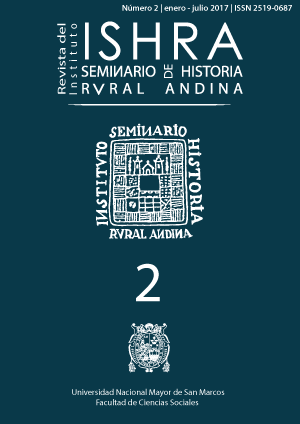From Persistence to Oblivion. The imprint of the Constitution of Cadiz in XIXth-Century Peru
DOI:
https://doi.org/10.15381/ishra.v0i2.14320Keywords:
Spanish Constitution of 1812, XIXth century Peru, Indian Vote, Town Councils, Catholic ReligionAbstract
It is proposed that doctrinal principles (liberal and conservative) of the Cadiz Constitution of 1812 are present in the Peruvian legislative codification of XIXth century. This proposition is tested through the validity of three of the most significant precepts of that Constitution: the vote of the illiterate Indians, the indirect election of the provincial town councils and the legal protection of the Catholic religion by the State. Therefore, It is analyzed the Peruvian constitution between 1823 and 1860, as well as the political literature of that time.Downloads
Downloads
Published
Issue
Section
License
Copyright (c) 2018 Víctor Peralta Ruiz

This work is licensed under a Creative Commons Attribution-NonCommercial-ShareAlike 4.0 International License.
AUTHORS RETAIN THEIR RIGHTS:
a. Authors retain their trade mark rights and patent, and also on any process or procedure described in the article.
b. Authors retain their right to share, copy, distribute, perform and publicly communicate their article (eg, to place their article in an institutional repository or publish it in a book), with an acknowledgment of its initial publication in the ISHRA, Revista del Instituto Seminario de Historia Rural Andina.
c. Authors retain theirs right to make a subsequent publication of their work, to use the article or any part thereof (eg a compilation of his papers, lecture notes, thesis, or a book), always indicating the source of publication (the originator of the work, journal, volume, number and date).






